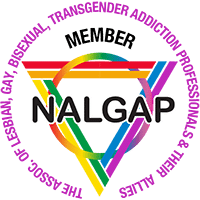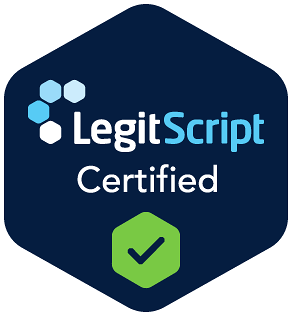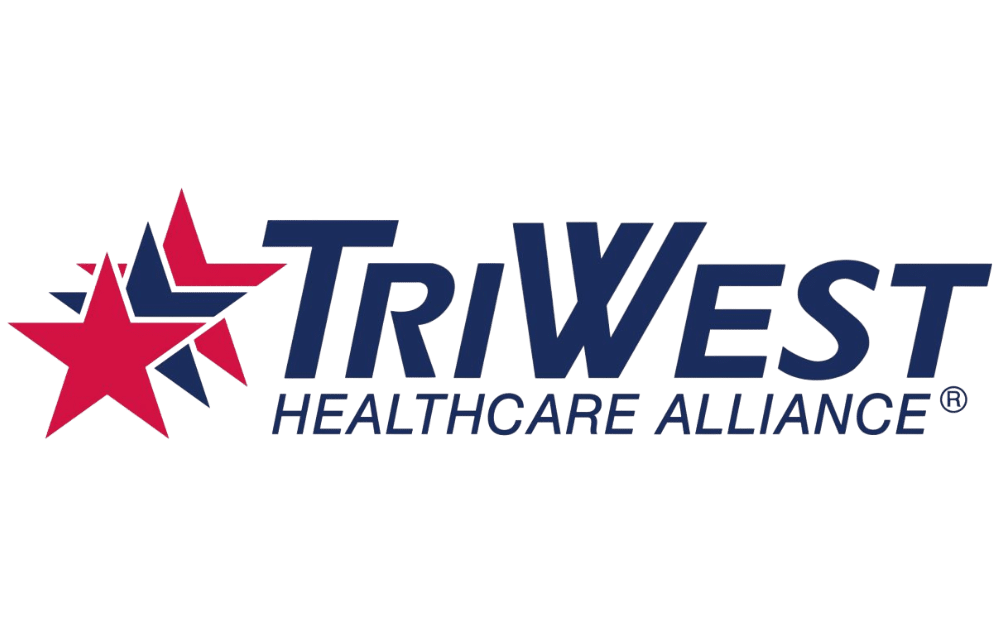Colorado drug rehab facilities
Exploring the Approach to Drug Rehabilitation
The journey to recovery is unique for every individual, but finding the right environment can be transformative. Our center in the Denver metro area offers a comprehensive approach to rehabilitation, embracing both traditional and innovative therapeutic methods. By integrating evidence-based clinical therapies with experiential activities, we provide a holistic treatment experience that addresses both substance use and mental health disorders.
The treatment model we employ is multi-phase and personalized, combining medical management with group work and hands-on experiences. This dynamic approach helps clients engage deeply with their recovery process, fostering long-term outcomes. Our continuum of care is designed to evolve with clients’ needs, providing support from initial treatment through to successful reintegration into daily life.
The Importance of Housing in Recovery
Stable and supportive housing is a cornerstone of successful recovery. At Mile High Recovery Center, we understand the significance of a safe environment during rehabilitation. Our integrated housing-to-treatment pipeline is designed to support individuals throughout their recovery journey, offering nine sober living homes in addition to our treatment center.
These residences provide more than just a place to stay–they offer a community of peers who understand the challenges and triumphs of recovery. This sense of belonging and collective encouragement plays a crucial role in maintaining sobriety and fostering personal growth. Our housing solutions are coordinated with treatment plans, ensuring continuity of care and support.
Our emphasis on supportive housing is complemented by our active alumni community, which offers continued support and engagement opportunities for those who have completed their formal treatment programs. This blend of structured living and community connection is vital for sustained recovery.
Embracing a Wide Range of Therapies
At Mile High Recovery Center, we believe in the power of diverse therapeutic modalities to address the various aspects of addiction and mental health. Our offerings include Cognitive Behavioral Therapy, Dialectical Behavior Therapy, and Motivational Enhancement Therapy, each tailored to meet individual needs. These evidence-based therapies provide the foundation for cognitive and emotional healing.
We also incorporate experiential modalities such as adventure therapy, equine-assisted therapy, and art and music activities. These innovative practices engage clients in unique ways, helping them explore emotions and build resilience. Additionally, our nutrition education programs emphasize the importance of physical well-being in the recovery process.
Our comprehensive approach ensures that each client receives a tailored treatment plan that’s as unique as their own journey, fostering deep healing and lasting change.
Navigating Treatment Options
Navigating the landscape of Colorado drug rehab facilities can be overwhelming, but our center offers clarity and support in selecting the right treatment path. We provide a range of options, from residential treatment to outpatient programs. This flexibility allows individuals to choose the level of care that aligns with their personal circumstances and recovery goals.
Our short-term residential and partial hospitalization programs provide intensive support, while our intensive outpatient and outpatient programs offer ongoing care as individuals transition back into their daily lives. Medication-assisted treatment, including Suboxone and Vivitrol, is also available to support individuals grappling with opioid use disorders.
We pride ourselves on offering same-day admission and 24-hour access for intake, ensuring that help is available when it’s most needed. This responsiveness is crucial for individuals ready to take the first step on their recovery journey.
For those who require dual-diagnosis services, we offer comprehensive support for co-occurring conditions such as anxiety, PTSD, bipolar disorder, and schizoaffective disorders. Our integrated approach addresses both the mental health and substance use components of addiction.
Community Involvement and Support
Community is at the heart of our approach to rehabilitation. We believe that recovery is a collective journey, and we strive to build a supportive network through our Denver City Center location. Our center’s urban setting provides access to various therapeutic activities in both urban and outdoor environments, reinforcing our commitment to community-based recovery.
Our alumni community plays a critical role in this network, offering mentorship and support to those currently in treatment. This ongoing connection helps individuals feel supported and motivated, even as they face the challenges of maintaining sobriety outside of a structured setting.
We actively engage with local healthcare providers and insurers to streamline transitions of care, ensuring that our clients receive seamless support as they navigate their recovery journey. This collaborative approach strengthens the community bonds that are so vital to long-term recovery success.
Through our commitment to inclusive care, we proudly serve diverse populations, including individuals from the LGBTQ community and military beneficiaries through Tricare. We are dedicated to creating a welcoming and supportive environment for all who seek our services.
Insurance and Financial Accessibility
Understanding the financial aspects of treatment is crucial for many individuals seeking help. Our center makes this process easier by offering insurance verification and accepting in-network reimbursement from major carriers such as Aetna, Cigna, and Blue Cross Blue Shield. This ensures that financial barriers do not impede access to quality care at Colorado drug rehab facilities.
We are committed to transparency in billing practices and offer support in navigating insurance options. By working directly with insurers, we help individuals understand their benefits and explore the coverage available for their treatment plan.
Our goal is to make treatment accessible to all, and we provide financial guidance and support to ensure that individuals can focus on their recovery journey without the added stress of financial uncertainty.
The Integral Role of Experienced Staff
Our team is the backbone of our center, composed of clinicians and staff who bring both professional expertise and lived recovery experience to their roles. This combination of knowledge and empathy creates a compassionate and understanding environment that is crucial for effective treatment.
Each team member is committed to the well-being of our clients, providing personalized care and guidance throughout the recovery process. Their dedication is evident in the strong relationships they build with clients, fostering trust and open communication.
The expertise of our staff is complemented by our commitment to ongoing professional development, ensuring that our team stays at the forefront of addiction treatment methodologies and practices.
Achieving Long-Term Recovery and Reintegration
Long-term recovery involves more than just overcoming substance use–it requires a holistic approach that includes reintegration into daily life. Our center emphasizes this aspect of recovery, supporting clients as they navigate the challenges of returning to their communities.
We focus on building life skills and resilience, equipping individuals with the tools they need to maintain sobriety and thrive in their personal and professional lives. Our alumni community offers ongoing support and opportunities for engagement, helping individuals stay connected and motivated.
Through our comprehensive approach to treatment and support, we strive to empower individuals to achieve lasting recovery and reclaim their lives. This commitment to lifelong recovery is at the heart of our mission and drives everything we do at Mile High Recovery Center.
What treatment options are available at Mile High Recovery Center?
At Mile High Recovery Center, we offer a comprehensive range of treatment options to cater to the diverse needs of our clients. Our services include residential treatment, short-term residential, partial hospitalization (PHP), intensive outpatient (IOP), and outpatient programs. We also provide medication-assisted treatment, including Suboxone and Vivitrol, for individuals dealing with opioid use disorders. Our center specializes in treating various substance use disorders and offers dual-diagnosis mental health services for conditions like anxiety, PTSD, bipolar disorder, and schizoaffective disorders. This versatility allows us to personalize each client’s treatment plan, ensuring the most effective care for their unique situation.
How does Mile High Recovery Center integrate therapy modalities?
We integrate a wide array of therapy modalities at Mile High Recovery Center to provide a holistic treatment experience. Our approach includes evidence-based therapies such as Cognitive Behavioral Therapy (CBT), Dialectical Behavior Therapy (DBT), EMDR, and Motivational Enhancement Therapy. We complement these with experiential therapies like adventure therapy, equine-assisted therapy, and art and music activities. By incorporating diverse therapeutic methods, we address the psychological, emotional, and physical aspects of recovery, helping clients engage more deeply with their healing process. For instance, one of our clients found that art therapy helped them articulate feelings they struggled to express verbally, highlighting the transformative power of non-traditional therapies.
Why is supportive housing important for recovery?
Supportive housing is a critical component of recovery because it offers a stable and secure environment where individuals can focus on healing. At Mile High Recovery Center, we provide an integrated housing-to-treatment pipeline with nine sober living homes. These residences offer more than just shelter; they provide a community of peers who share similar recovery journeys, fostering a sense of belonging and mutual encouragement. This community aspect is crucial for maintaining sobriety and supporting personal growth. One of our residents shared how living in a sober house helped them rebuild trust with their family, demonstrating the profound impact supportive housing can have on relationships and recovery.
What role does experienced staff play in the recovery process?
Experienced staff are fundamental to the recovery process at Mile High Recovery Center. Our team comprises clinicians and staff who bring both professional expertise and lived recovery experience to their roles. This unique combination creates a compassionate and understanding environment, essential for effective treatment. By fostering strong relationships built on trust and open communication, our staff guide clients through their recovery journey with personalized care and empathy. Continuous professional development ensures our team stays at the forefront of addiction treatment, enhancing the quality of care we provide. As one staff member recently expressed, “Seeing clients transform their lives is the most rewarding part of my job.”
How does Mile High Recovery Center support long-term recovery?
Mile High Recovery Center is committed to supporting long-term recovery through a comprehensive approach that extends beyond initial treatment. We emphasize the importance of reintegration, helping clients develop life skills and resilience necessary for thriving in their personal and professional lives. Our active alumni community plays a key role in sustaining long-term sobriety by providing ongoing support and engagement opportunities. By maintaining connections with peers and mentors, individuals are better equipped to navigate the challenges of post-treatment life. We encourage clients to continue participating in alumni events, as these interactions often lead to new insights and motivation.
What financial options are available for treatment at Mile High Recovery Center?
Understanding the financial aspects of treatment is important to us, and we strive to make our services accessible to all. At Mile High Recovery Center, we accept in-network reimbursement from major carriers like Aetna, Cigna, and Blue Cross Blue Shield. We offer insurance verification to help clients understand their benefits and navigate their coverage options. Our commitment to transparency in billing practices ensures that financial barriers do not impede access to quality care. If you’re concerned about costs, our financial guidance team is available to assist you in exploring all available options, focusing on your recovery without the added stress of financial uncertainty.
How do medication-assisted treatments like Suboxone or Vivitrol fit into recovery plans?
Medication-assisted treatments (MAT) such as Suboxone and Vivitrol are integral components of the recovery plans at Mile High Recovery Center, especially for individuals struggling with opioid use disorders. These medications help reduce cravings and withdrawal symptoms, enabling patients to focus more on their therapeutic recovery activities. For example, one client who was apprehensive about their ability to manage cravings shared that Suboxone made them feel more stable and in control during their early recovery stages. MAT is always used in conjunction with other therapies and is closely monitored by our medical team to ensure each client’s safety and optimal outcomes.
How does Mile High Recovery Center engage with the community?
Community involvement is at the heart of our approach at Mile High Recovery Center. We believe that recovery is a collaborative effort, and we strive to build a supportive network within our urban setting in the Denver City Center. Our clients have access to a variety of therapeutic activities in both urban and outdoor environments, reinforcing our commitment to community-based recovery. Our alumni community provides mentorship and support, enhancing the sense of community and encouraging ongoing sobriety. Additionally, we actively collaborate with local healthcare providers and insurers to ensure seamless transitions of care, strengthening the community bonds vital for long-term recovery success. One of our clients recently mentioned how participating in local volunteer activities helped them regain a sense of purpose, illustrating the positive impact of community engagement on recovery.
What steps should I take if I need help with addiction in Colorado?
If you or a loved one needs help with addiction in Colorado, the first step is reaching out for support. You can contact Mile High Recovery Center for same-day admission and 24-hour access for intake, ensuring help is available when needed. Additionally, the Behavioral Health Administration of Colorado provides resources and referrals for mental health and substance use services, which can be accessed through their website here. Finding the right treatment center is a personal journey, and it’s important to choose a facility that aligns with your specific needs and offers the right level of care. Once you’ve identified potential options, reach out to them directly to learn more about their programs and how they can support your recovery journey. Remember, seeking help is a courageous first step towards a healthier future.
Resources
- Substance Abuse and Mental Health Services Administration (SAMHSA) – SAMHSA is the leading agency within the U.S. Department of Health and Human Services focused on improving the quality and availability of treatment services for individuals dealing with substance abuse and mental health issues.
- National Institutes of Health (NIH) – NIH is the largest biomedical research agency in the world, conducting scientific studies to advance our understanding of health and disease. They provide valuable information on various aspects of addiction and recovery.
- National Institute on Drug Abuse (NIDA) – NIDA is a government organization dedicated to advancing addiction science and providing resources to help individuals and families understand the impact of drug abuse on health and well-being.
- Centers for Disease Control and Prevention (CDC) – The CDC is a reliable source of information on public health, including substance abuse prevention and treatment strategies. They offer valuable insights into the impact of drug use on society.
- National Alliance on Mental Illness (NAMI) – NAMI is the largest grassroots mental health organization in the United States, providing advocacy, support, and education to individuals and families affected by mental health conditions, including co-occurring disorders with substance abuse.
















